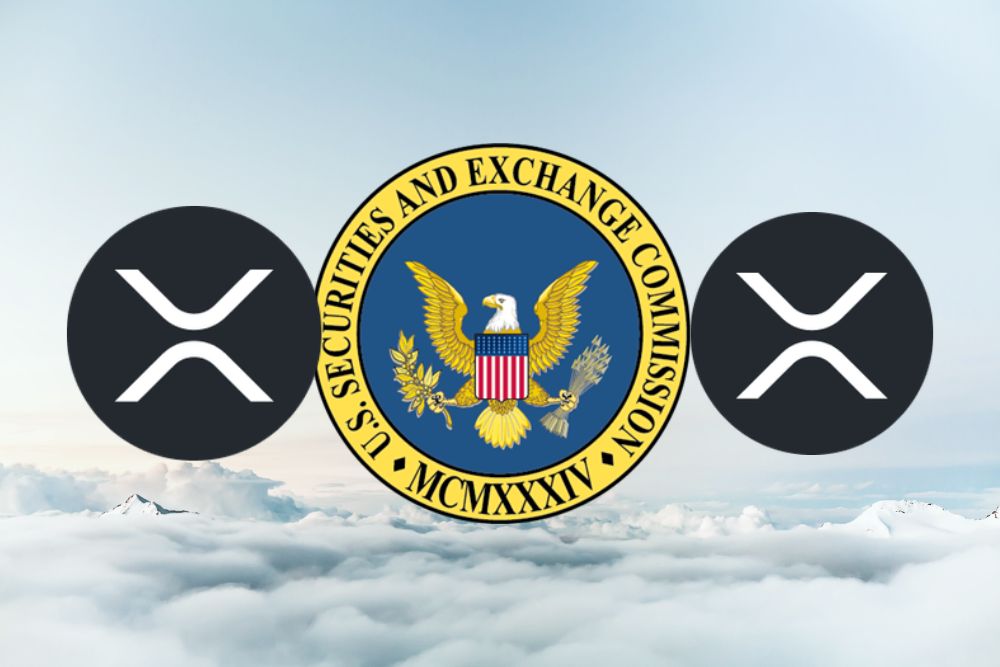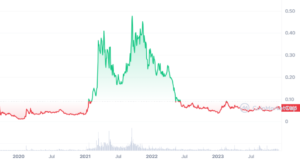In the world of cryptocurrencies, one name that often comes up is XRP. This digital currency, created by the company Ripple, has gained attention for its potential to revolutionize how money is transferred across borders. However, XRP has been at the center of a significant legal battle known as the “XRP lawsuit.” In this article, we will break down what the XRP lawsuit is all about, why it matters, and what the potential outcomes could be for investors and the cryptocurrency market as a whole.
What is XRP?
Before diving into the lawsuit, let’s first understand what XRP is. XRP is a digital currency designed to be fast, secure, and efficient. It was created by Ripple Labs, which aims to facilitate international money transfers with minimal fees and quick processing times. Unlike traditional banks that can take several days to transfer money, XRP transactions can happen in seconds.
XRP is often seen as a bridge currency, allowing for easy conversions between different fiat currencies. For example, if someone in the United States wants to send money to a friend in Europe, they can convert U.S. dollars to XRP and then convert it to euros on the other end. This makes XRP attractive to financial institutions and individuals alike.
The Beginning of the XRP Lawsuit
The XRP lawsuit began in December 2020 when the U.S. Securities and Exchange Commission (SEC) filed a complaint against Ripple Labs. The SEC claimed that Ripple had conducted an unregistered securities offering by selling XRP. This means the SEC believes XRP should be classified as a security, similar to stocks or bonds, rather than a currency. The classification of XRP as a security would mean that Ripple would need to follow specific regulations when selling it.
The SEC argued that Ripple had raised over $1.3 billion through the sale of XRP, which they deemed illegal since Ripple did not register these sales with the SEC. Ripple, on the other hand, claimed that XRP is not a security but a digital currency like Bitcoin or Ethereum. This disagreement between Ripple and the SEC is the heart of the lawsuit.
Why Does the XRP Lawsuit Matter?
The outcome of the XRP lawsuit is important for several reasons. First, it will set a precedent for how other cryptocurrencies are regulated in the United States. If the court rules in favor of the SEC, it could mean that many cryptocurrencies will be classified as securities, which would change how they are sold and traded. This could lead to stricter regulations and affect the entire cryptocurrency market.
Second, the lawsuit directly impacts Ripple and its business operations. If Ripple loses the case, it may face heavy fines and restrictions on selling XRP. This could also lead to a decrease in the value of XRP, affecting investors who hold the currency. On the other hand, if Ripple wins, it could validate XRP’s position as a digital currency and boost its legitimacy in the eyes of investors and financial institutions.
The Players Involved
In the XRP lawsuit, there are a few key players that everyone should be aware of.
- Ripple Labs: The company behind XRP, founded in 2012, Ripple aims to improve cross-border payments. Its team includes experienced professionals from banking and technology sectors.
- Brad Garlinghouse: He is the CEO of Ripple Labs and has been a prominent figure in defending the company against the SEC’s claims. Garlinghouse believes that XRP is a currency and should not be subject to securities laws.
- The SEC: The U.S. Securities and Exchange Commission is responsible for protecting investors and maintaining fair markets. Their lawsuit against Ripple is a significant action in the crypto space.
- Investors: XRP holders and investors have a vested interest in the outcome of the lawsuit, as it could significantly affect the value of their investments.
Timeline of Events
To understand the lawsuit better, let’s look at a brief timeline of events:
- December 2020: The SEC files a lawsuit against Ripple Labs, claiming that XRP is a security.
- January 2021: Ripple responds to the lawsuit, asserting that XRP is a digital currency, not a security. They also seek to have the case dismissed.
- April 2021: The court allows Ripple to access SEC documents related to Bitcoin and Ethereum, arguing that it needs to demonstrate the SEC’s inconsistent treatment of different cryptocurrencies.
- July 2021: Ripple wins a small victory when a judge grants them access to additional evidence that could strengthen their defense.
- November 2022: The case continues to unfold, with both sides presenting arguments. The outcome remains uncertain.
Arguments from Ripple
Ripple has presented several arguments in its defense against the SEC. One of the primary arguments is that XRP is a digital currency and not a security. Ripple claims that XRP has been widely used as a medium of exchange, and its value does not depend on the efforts of Ripple Labs. This distinction is crucial because, under U.S. law, a security is typically an investment contract where the value depends on the efforts of a company or individual.
Additionally, Ripple argues that the SEC has not provided clear guidance on how cryptocurrencies should be classified. They claim that the SEC’s actions could stifle innovation in the cryptocurrency industry, as companies may be hesitant to develop new technologies without clear rules.
The SEC’s Position
On the other side, the SEC maintains that Ripple’s sales of XRP were unregistered securities transactions. The SEC argues that Ripple has benefited from the sale of XRP and that investors were led to believe they were buying a security with the expectation of profit. This expectation is a key component in defining what constitutes a security under U.S. law.
The SEC also contends that cryptocurrencies should be subject to the same regulations as traditional securities to protect investors from potential fraud and misconduct. By classifying XRP as a security, the SEC aims to ensure that companies selling digital assets are held accountable and follow the necessary legal requirements.
What Happens Next?
As the XRP lawsuit progresses, many people are wondering what the next steps will be. The case could go to trial, or it might be settled out of court. A trial could take months, if not years, to reach a final decision. During this time, both Ripple and the SEC will continue to present evidence and arguments in their favor.
If the case goes to trial and a decision is made, it could set a precedent for future cryptocurrency regulations. A ruling in favor of Ripple could provide more clarity for other digital assets and potentially lead to a more favorable regulatory environment for cryptocurrencies in the U.S. Conversely, a ruling in favor of the SEC could result in stricter regulations and impact how cryptocurrencies are traded.
Implications for Investors
The XRP lawsuit has significant implications for investors who hold XRP or are considering investing in it. If Ripple loses the case, it could lead to a decline in the value of XRP, as investors may panic and sell their holdings. Additionally, if XRP is classified as a security, exchanges may stop trading it, further impacting its liquidity and value.
On the other hand, if Ripple wins, it could boost investor confidence and lead to an increase in XRP’s value. Many investors are keeping a close eye on the lawsuit’s progress, as its outcome could directly affect their investment strategies.
Conclusion
The XRP lawsuit is a pivotal moment in the cryptocurrency world. It highlights the ongoing struggle between innovation and regulation in the digital asset space. As we’ve explored, the case involves complex legal arguments, key players, and potential implications for the future of cryptocurrencies.
Regardless of the outcome, the XRP lawsuit will likely shape how cryptocurrencies are regulated in the United States and influence how investors approach digital assets in the future. For now, we can only wait and see how the case unfolds, hoping for clarity and fairness in an ever-evolving market






